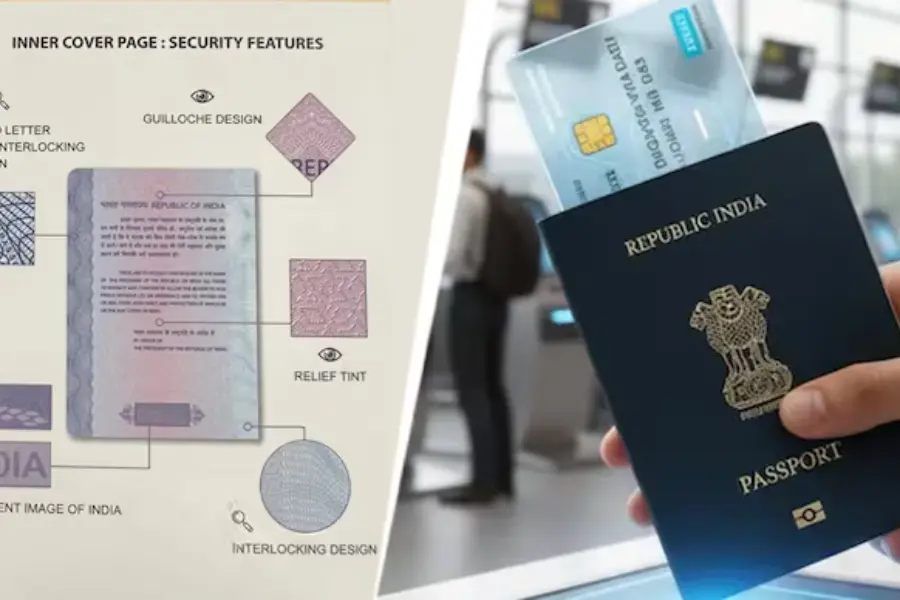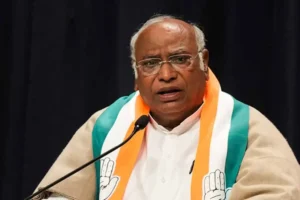
An Important Technological Development for Indian Passports
In a significant advancement in technology, India has secretly begun to issue e-passports to its citizens. This marked a new era of safe and smart travel documents. Beginning in May 2025, every passport issued—internally in India or internally at Indian missions—will have an advanced contactless RFID chip inside. This development has grown quickly to be a headline in the news now. It shows the government’s commitment to improved security and focus on technological advancement.
To date, over 80 lakh (8 million) e-passports have been issued in India. 62,000 have been issued at official missions around the world.
What is Different About E-Passports?
Officials have compared transitioning from a traditional passport to an e-passport like transitioning from “3G to 5G.” The key technological advancement is a native operating system with a secure RFID chip that protects:
- The facial image of the holder
- Demographic information
- A digital security certificate that verifies the authenticity of the data.
The chips are compliant with International Civil Aviation Organization (ICAO) standards and use cryptographic protocols and public key infrastructure (PKI) to safeguard the information from cloning, digital tampering, and impersonation.
According to senior officials, this new e-passport’s security measures make it one of the most difficult travel documents to fake.
Improved Security Outcome While Keeping Costs the Same
Officials have indicated that the upgraded design makes it more difficult for scammers to succeed.
“It’s going to stop someone else pretending to be you.” “It’s a process,” one official working on the project mentioned. With this enhanced safety protocol in use, there is an expectation that the number of Indian passports obtained illegally will be reduced significantly.
Although the new chip-enabled passports will cost more to produce. The government offers assurance that fees to citizens will stay the same for passports. “We are taking on any increase in costs here,” one official reported.
Dealing with Privacy Concerns
Given that digital security has been a hot topic in recent news, concerns over privacy were expected. However, MEA officials are saying that “the system is built around citizen security.”
The agreement with Tata Consultancy Services (TCS), which runs the backend system, states that the MEA is the sole owner of all digital infrastructure and data, giving it complete control and security from unauthorized access.
“MEA officials comforted citizens by saying, ‘Your data will be safe,’ before any worries could grow.”
Expired Passports Are Valid Until 2035
People with regular paper passports don’t need to worry about switching over just yet. The old document will be deemed valid until 2035, which gives plenty of time for people to transition in the interim. But for those who want new, or merely renewed, passports, e-passports are standard now.
This transition shows India is aligning with world standards in terms of passport technology and enhancement in safely and securely travelling internationally.
A Thin Booklet That Provides Big Protection
The new document may look the same on the outside but what is most important is the chip in the interior. Officials believe this transition puts India in a position that leads in providing most strong, secure, and modern solutions for travel identification.
With millions of people engaged in the enhanced passport, the country is boldly stepping into a future where identification security is stronger than it has ever been—powered by innovation, protected by technology, and now appearing in some of the country’s recent news updates.






What’s the deal with bbjljl? Is it just another clone site, or does it have anything special going on? Let a brother know.
Downloaded the spinwinapk. Works fine, spins and wins, or doesn’t. It’s all chance, you know? Just be smart about how you play. Get spinning here: spinwinapk
Hey! Been playing with the b29betapk app, works great! Seriously, give it a shot if you’re looking for a betting app. You can download the app here: b29betapk
Just browsing around and saw e2bet89. Seems like another decent online betting option. The bonuses are pretty tempting! Worth a look, I think. Learn more at e2bet89.
Yo! Played winme.com jogo online at Winmiibet the other day. Loads of fun, kept me entertained for hours! Definitely worth a shot if you’re looking for something new. More here: winme.com jogo online
Heard some good things about ta88. Looks like they’ve got a good range of casino games and sports betting. Might be worth a look if you’re looking for some variety. Learn more here: ta88
Triangagame, new to me! The site looks interesting. Anyone know what kind of games they offer? Give it a try and tell me! Get started at: triangagame
Just stumbled on m666. Not bad! Seems like a solid resource. Will definitely be back to see what else they’ve got. Explore at m666!
Feeling fancy? Been exploring 639jlvip and the VIP experience seems solid. Loyalty rewards and exclusive games are sweet. Thinking of upgrading my account! Check them out: 639jlvip
789pvip looks interesting, gotta say. Their VIP program seems enticing. Anyone here a member? Wanna hear your experiences with using 789pvip!
0066betcom’s got a good range of options. Easy to get started and I haven’t had any issues so far. Find it here: 0066betcom
Is 999PHLcomlegit for real? Well, I’ve had okay experience with it. Give it a go if you’re curious too! 999phlcomlegit
Hahaha777… Okay, that’s certainly different. Hope it brings some laughs and wins. Will have a look to see if it is fun. Could use some fun. hahaha777
Okay, s666fyford. I would recommend it! And it’s very easy to navigate, and it’s very fast. Check it out for yourself: s666fyford.
Looking for a new place to test your luck? 66wins seems promising! Maybe today is your lucky 66. Worth a peek if you’re shopping around. Give it a peek at 66wins!